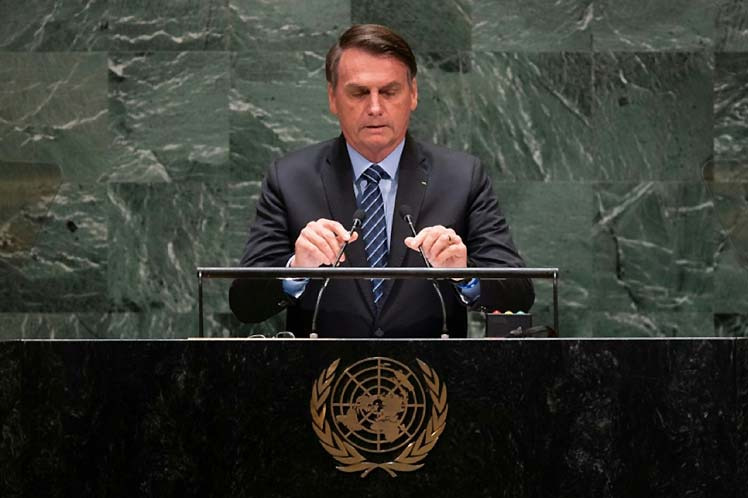
Photo / El País
By María Josefina Arce
Several days have passed since Jair Bolsonaro's speech before the UN General Assembly and most Brazilians are still wondering where are the achievements in environmental matters, among other aspects, presented by the president of Brazil to the participants in the 76th session of the world body.
The president affirmed that during his term of office, which began in January 2019, deforestation decreased. But reality belies his words. Only one year after taking office, the loss of forest areas was already the highest in the past 12 years.
Between August 2020 and July 2021, the Amazon lost 10,476 square kilometers, according to data published by Imazon, a Brazilian research institute.
By the end of this year, the deforestation rate is expected to be almost 50% higher than in 2018, before Bolsonaro arrived at the Planalto Palace.
In fact last June the then head of the Ministry of Environment Ricardo Salles resigned amid accusations of having blocked a police Investigation into illegal logging in the Amazon.
Bolsonaro's words are far removed from the reality of Brazil today. Although the president said the opposite before the UN, his government has been weakening environmental oversight agencies and has made it difficult to demarcate Indigenous lands, illegally invaded by loggers, ranchers and miners, encouraged by the presidential speech.
Now, a few days after his intervention before the UN and his supposed commitment with the environment, the alarm has sounded again in the nation. It was learned that the Ministry of Economy presented a project to make environmental measures more flexible, aimed at facilitating and promoting internal investments.
Transforming the productivity and competitiveness of the South American giant is the pretext of the project, which has provoked numerous criticisms in various sectors of society, considering it as the greatest threat to the sustainability of the Brazilian state.
The automatic granting of permits for environmental impact projects in the event of delay is one of the points of the plan, submitted by the Ministry of Economy to the Ministry of the Environment, which in turn sent it to the Brazilian Institute of the Environment and Natural Resources for consideration.
It also insists on the annulment of regulations against logging of native vegetation that apply directly to the Mata Atlântica biome, considered one of the most biodiverse areas in the world. It was declared a biosphere reserve by UNESCO,
United Nations Educational, Scientific and Cultural Organization, and National Heritage in the 1988 Constitution, however, today 90% of its original extension is destroyed.
The criticized project also contemplates extinguishing the list of the National Environmental Council that defines the cases that previously require a study of impact on the environment.
Marcio Astrani, executive secretary of the Climate Observatory, pointed out that the government and private initiative must give explanations for what he described as a new absurdity.
Bolsonaro said one thing at the UN, but the truth is that the country under his mandate is going in another direction, contrary to the global climate agenda that seeks to preserve the planet to ensure the future of humanity.

